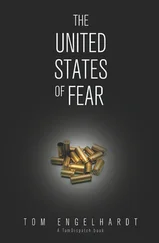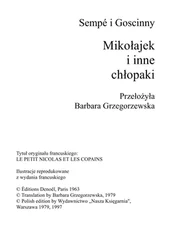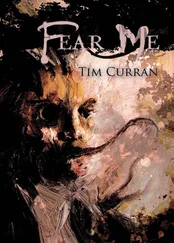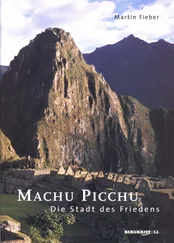It was impossible to turn away. This, I realized immediately, was what we needed. I listened to him sing and play three songs, until he removed the straw hat from his head with a flourish, made a bow, and solicited contributions.
“I’m not the preacher,” he announced, setting his hat down on the cobblestones, “and I’m not the preacher’s son — but I’ll take up collection ’til the preacher comes. .” Five or six coins fell under his glance as he twisted a tuning peg, thumbing a string, repeatedly, as its pitch rose and took its proper place in the choir. I remember the sharp sunlight and the rushing clouds on that brilliant, blustery afternoon.
I hung back to let the crowd disperse, meaning to talk to him in private. As I waited, my attention was distracted for a moment by some barrels falling off the back of a cart and making an ungodly racket, which startled everyone. When I turned my attention back to the group, the wizard had disappeared. Not a sign of him, as if he were a djinn returned to a bottle and spirited away. It was the first evidence I had of his genius for escape. I swore that I would return and find out who he was. And that is what changed everything for me.
I had been in Philadelphia for three years.
I had made a place, and a name, for myself in that sprawling city, with its alleys and avenues, its great stone churches and its mean dockside hotels, its Southwark and its Callowhill and its broad public squares. At that time it was hard to know whether the city was under construction or demolition. It was, in fact, both, and at a feverish pace. The same might have been said for the entire nation. Buildings, businesses, whole communities sprang up seemingly overnight, then were torn down to make way for their successors, as if living out some myth of endless progress, of clear title to reshape the world day to day.
At least this was the case in the Northern states. In the South, a different myth was under construction — of some fancied Golden Age, a glorious past built on the bones of the present, some vision of columned buildings and millennial stasis. A stage setting, behind which you could hear the groans of the dark-skinned men and women who labored without pay to keep the illusion inflated. It was an odd spectacle to witness at a distance, especially for those who were raised in the illusion-free setting of a small working farm holding, as I had been, and who supplied the necessary labor themselves.
My grandparents on either side had arrived in America during the first great wave of Irish immigration, sometime soon after the nation had become a nation, and they settled near the Pennsylvania borderlands, not far from what became Gettysburg. My father’s line of Scotch-Irish mistrusted the cities, mistrusted in fact any form of imagination beyond what was necessary to establish one’s own holding and be left alone. My mother was Catholic Irish, and so nothing if not imaginative, and life in my father’s literal and figurative Presbyterian gristmill must have been a kind of slow extinction. I saw this, although none of my ten siblings — all of whom were older than myself — seemed to, and I was always trying to raise a smile on her face with some little song or saying.
I was beaten regularly. All my brothers were beaten, although my eldest brothers seemed to take it as a badge of pride and a token of affection. I did not. If ever my father saw me idle, or enjoying a joke or a game of my own devising, this was cause for correction. A smell of stale urine and perspiration came off him as he whipped me with a doubled length of rope and an expressionless face. It was the closest physical contact I had with him. I did not wish for more.
Oddly enough, my father did not mind music. He played the fiddle in a flatfooted, unadorned manner, and he had a number of the old ballads by heart, things such as “The Unquiet Grave” and “The Twa’ Corbies.” His ordinarily watchful, squinting eyes would close and his brows arch slightly when he would approach one of the higher melody notes. I found these songs rather somber, but I was fascinated by the very fact that they existed — that a person, even one as stolid as my father, could all but change shape by shifting from the spoken language of workaday concern into song, as if stepping through a window onto the moon.
As soon as I was deemed old enough — five years old — I was delegated to drag sacks of this or that over here or there, under the low wood rafters, and to stand by a cart until brother Mac returned, and to milk our cows when sister Margaret had other responsibilities. My father grudgingly allowed me to attend school — at my mother’s insistence — and I had instruction until the age of eleven, at which time I was officially herded toward the waiting yoke. Not even the mill, but rather some dismal farmland he had acquired, half a day’s ride away, near Carlisle.
It broke my heart to leave my mother. She was my refuge from an oppressive tedium — the dispenser of consoling words, little rhymes, small tokens always hidden from my father and brothers, such as a piece of pie or candy that she had acquired somehow. I suppose I was her refuge as well. She wept when I left. I did as well, but I did it out of sight.
At the farm, I worked under the supervision of my brothers Duncan and Robert. They took after our father in their habits. The days were intolerably long, and filled with pointless repetitive labor. Work this pump until your right arm drops off. Repeat, with your left, until you are armless. Sleep upon a horsehair pallet half an inch thick, grow two arms back, repeat the next day. Grind this, lift this, carry this, pull this. My brothers, never warm to begin with, were strangers to me now, whose only means of social intercourse seemed to be the shouting of orders, the emission of rude jokes, and the administration of physical punishment, with and without cause. I had no privacy whatsoever, except for Sundays after church, when I would steal a precious hour or two and escape into the one book I had managed to export from home— Robinson Crusoe .
I hated the farm, and I thought my life had ended prematurely, but it was there that I first saw the Negro minstrels.
My brothers had met two sisters in the town, a brewer’s daughters as I remember, and invited them to a show which was to be held in a tent on a neighboring farm. At that time, and in that place, entertainment was not easily available, and when some itinerant offering came through, whether it was a lantern show or a lecture or a circus, everyone attended.
Of course my brothers had no inclination to bring me along on their evening of courtship, but I put up a racket, threatening every type of insurrection — I was twelve years old, and I could have brought the farm’s gears to a halt in half a dozen ways — and they gave in, installing me in the rear of a cart, amidst the hay and some lengths of wood for a future barn. I had no idea what we were going to see; I just wanted to go somewhere.
The show was to be held on a farm six miles away, and the spring evening was warm as the cart made its way along the post road. Any form of travel was a balm to my soul, and I lay in the back looking up at the softening evening sky and wished I were on my way to some glorious battle or sea voyage. The sky was a great ocean and the clouds were ships. I awoke from a shallow slumber as the wagon rocked to an abrupt halt and we were stopped in a field, among many others.
The seats were already filling in the tent. Duncan and Robert and the girls found four together near the rear, and I was left to locate an orphaned perch for myself. This turned out to be good luck, as I made my way to the front and found a narrow spot on a bench between two corpulent farmers, only one row away from the stage platform. I can recall as if I were there now the shadows on the inside of the tent, the smell of bodies and the earth on which the benches were set.
Читать дальше










